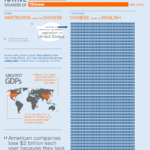Most people who start up clearly recognize that they require resources. But often times when I ask them, what is it that they would want, they give one simple answer: Funding.
Capital, over the years have come to mean one thing – money, but in a more liberal form (and original context) capital refers to any asset that can generate value, and in return generate income – if you are an enterprise, then its money. If you are a social enterprise, then you can in turn use that wealth towards sustainability.
I’ve seen plenty of startups, and orgs (through our work with efforts like The Goa Project), where early founding teams spend an extra-ordinary amount of time, in the fundraising process, and then raise the money only to realize that execution is still a problem because the talent pool that they need onboard to execute their goals simply aren’t there. If they somehow manage the team, then they realize they lack the connections and the network to move fast enough.
It takes an inexplicably long(er) time in Emerging Markets (India is no exception) to build value.
And going by the formula above, the longer it takes to generate value, the longer it takes to create income. It all spirals down rather quickly.
I don’t know the answer to most of these things, and I am putting these out as I learn – since I’ve been in the centre of rather different kinds of orgs – partly by experimentation, be it building community centric efforts like Proto.in or The Goa Project, or by building hybrid orgs like The Startup Centre, or with the startups I work with. But one thing seems to be coming to the forefront quite clearly. If you have to opt between money or resources, choose resources. If you have to opt between people or money (say a large org will depute a very talented member to your team), that might be more valuable than money itself. What you trade for that, is a complicated question. Would love to hear your thoughts on that.





























